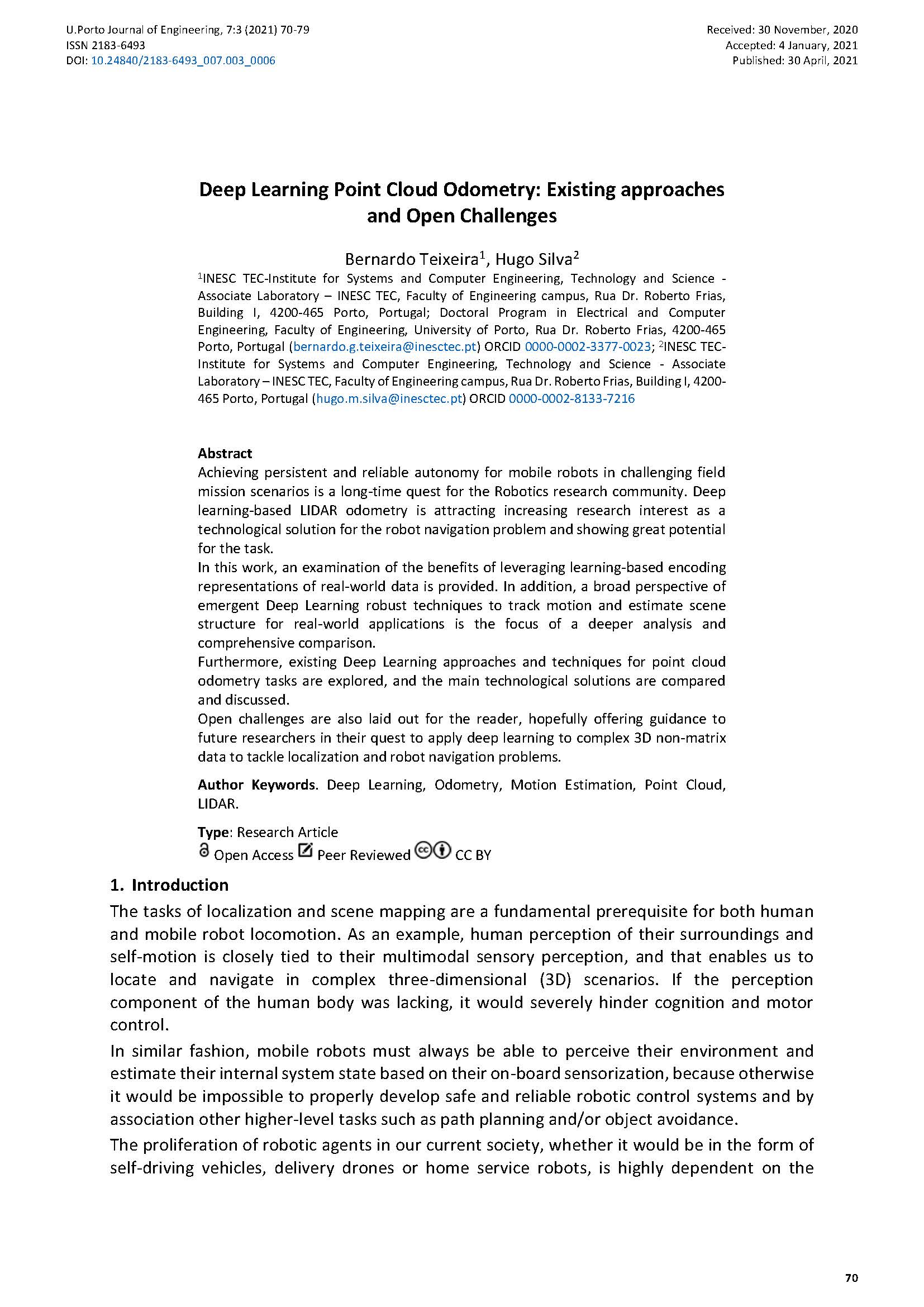Deep Learning Point Cloud Odometry Existing approaches and Open Challenges
Main Article Content
Abstract
Achieving persistent and reliable autonomy for mobile robots in challenging field mission scenarios is a long-time quest for the Robotics research community. Deep learning-based LIDAR odometry is attracting increasing research interest as a technological solution for the robot navigation problem and showing great potential for the task.
In this work, an examination of the benefits of leveraging learning-based encoding representations of real-world data is provided. In addition, a broad perspective of emergent Deep Learning robust techniques to track motion and estimate scene structure for real-world applications is the focus of a deeper analysis and comprehensive comparison.
Furthermore, existing Deep Learning approaches and techniques for point cloud odometry tasks are explored, and the main technological solutions are compared and discussed.
Open challenges are also laid out for the reader, hopefully offering guidance to future researchers in their quest to apply deep learning to complex 3D non-matrix data to tackle localization and robot navigation problems.
Downloads
Article Details

This work is licensed under a Creative Commons Attribution 4.0 International License.
Authors who publish with this journal agree to the following terms:
- Authors retain copyright and grant the journal right of first publication with the work simultaneously licensed under a Creative Commons Attribution License that allows others to share the work with an acknowledgement of the work's authorship and initial publication in this journal.
- Authors grant the journal the rights to provide the article in all forms and media so the article can be used on the latest technology even after publication and ensure its long-term preservation.
- Authors are able to enter into separate, additional contractual arrangements for the non-exclusive distribution of the journal's published version of the work (e.g., post it to an institutional repository or publish it in a book), with an acknowledgement of its initial publication in this journal.
- Authors are permitted and encouraged to post their work online (e.g., in institutional repositories or on their website) prior to and during the submission process, as it can lead to productive exchanges, as well as earlier and greater citation of published work (See The Effect of Open Access).

